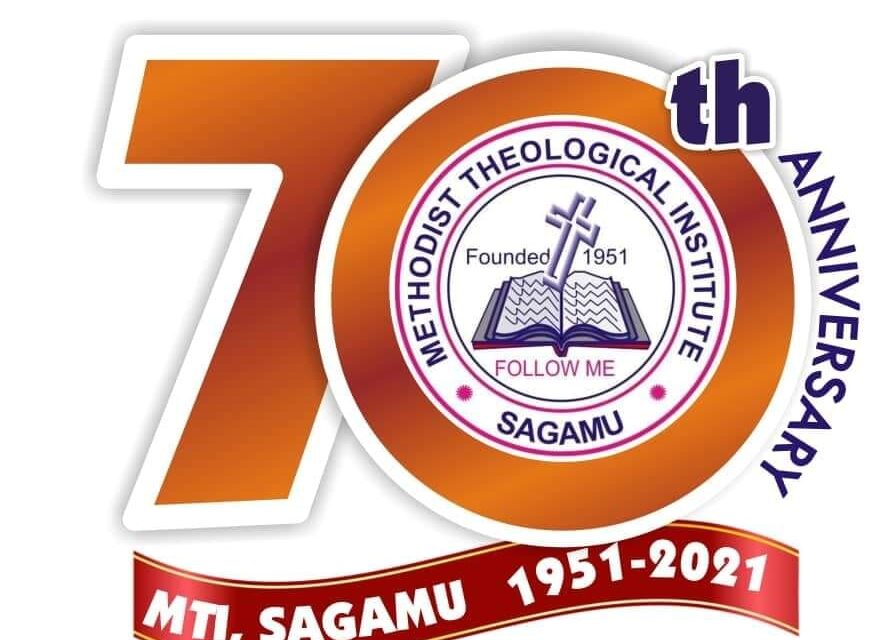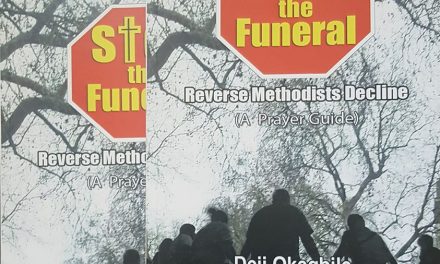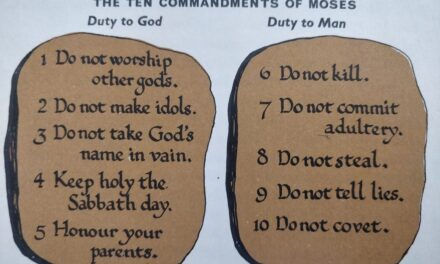Theological education is missional in nature. The missional approach is Bible-shaped and very vital for the growth, health, renewal, leadership, and mission of the church. The state of theological education and ministerial formation in Nigeria today calls for concern and attention. The emerging churches and prayer houses made up of first-generation believers operates with totally different sets of worldviews and consumers practices. The problem therefore suggests missional leadership deficit due to lack of deep discipleship under the Lordship of Jesus Christ in their lives, which would transform their worldviews. Lack of formal and biblical training with the increase rate of Christian conversion[1] especially in Nigeria calls for the attention of the Methodist Theological Institute (MTI), Sagamu at 70. The Institute established in 1951 by Methodist Church Nigeria, the first international denomination in Nigeria for training people for the Church Ministry is open to other denominations. Modern Christianity began in Nigeria in the evening of September 23, 1842 with the Methodist Missionary Society (MMS), through the pioneering works of Thomas Birch Freeman, his wife and two devoted African helpers, Mr and Mrs William De Graft.[2]
The MTI beyond the theological training and ministry-formation ‘plays the role of interpreting and integrating the policies of the Church and Christian doctrines. The challenge is, since 1951 and 1993 when MTI was upgraded to the status of Ministerial training for Word and Sacrament, and now as Degree and Masters awarding theological Institute, Nigeria need to re-envision theological education as ‘discipling the disciplers.’[3] Nigeria need urgently intentional transformative theological education rooted in missional and ministerial formation. Peter Ozodo, formerly of CAPRO Mission International, likens the positive effect on Nigerian church numerical growth to ‘quantity without quality.’[4]
Beyond the political and economic challenges, the theological direction Nigeria is heading can be tragic except there is a Divine intervention. Most Rev Professor E. M. Uka, a former Prelate, Presbyterian Church of Nigeria said, “I’ve never seen a nation awash with so many churches and aglow with so much unrighteousness, corruption and rank hypocrisy.’[5] Nigeria is never in lack of churches, pastors, bishops, founders and General Overseers. The observations about the present Nigeria context of theological education and ministry formation is worrisome. Many are dismissing the church just as churchmanship continue to focus ‘heavily upon “taking care of own” through operating effective programs to meet the felt-needs of individuals and families.’ Nigeria church context is increasingly accommodating the world in the sense of the present values of modern culture shaping ‘the church, particularly individualism, materialism, and privatization. The result is that the church is too much like the world to make a difference, yet our self-perception is that we are different from the world.’
Ebenezer Obadare in one of his books, Pentecostal Republic: Religion and the Struggle for State Power in Nigeria provides an account of the interplay of religion and politics in Nigeria especially since the return to civil rule in May 1999. According to him, ‘the dawn of democratic rule in 1999 coincided with the triumph of Christianity over its historical rival, Islam as a political force in Nigeria… the political triumph of Christianity came about as Pentecostalism was muscling its way to the front of the line as the dominant expression of Christianity in the country and beyond.’[6] The impact of Pentecostalism and Pentecostal forces with the most popular brand known as the ‘prosperity gospel,’ according to some observers, is ‘contributing to a political culture that perpetuates inequality.’
Missional theological education has the potential to focus on the emerging churches with many new believers, marginalized and faced with oppressive backgrounds. Missional theological education is open to the heart language of people for effective communication of the Gospel and church planting. The keys to missional theological education namely; the vernacular of the people and oral communication enhances grassroots discipleship patterns.
Obadare’s idea of the triumph of Christianity over its historical rival, Islam in Nigeria may not hold water bearing in mind the resurgence of Islamic fundamentalism, especially Boko Haram in Nigeria. Geiko Muller-Fahrenholz explained that ‘the memory of the Arab-Islamic world empire which in its heyday’ still remains today as ‘superior to all other people. According to him, ‘Islam understands itself as the divinely-appointed religious and political order for the whole world.’[7] With Islam as a ‘religion of victors’ in a context of social and cultural upheavals which continue to make Nigerian Christians to operate with unprecedented doubts and uncertainty,[8] Nigerian Christians need missional theological education and ministerial formation.
MTI at 70 is to inspire new life to renew and transform the church and the nation. A missional approach to our theological education and ministerial formation provides the context with which we pursue the integration of our mission task and calling. A missional approach to our theological education and ministerial formation has the potential to provide ‘scholarly grounding in the Christian tradition of biblical-theological-historical reflection, which engenders confidence in the Gospel, fosters spiritual vitality and animates creative and faithful ministry; Spiritual formation in the practices and disciplines of following Jesus, established with deep biblical-theological roots, and given an outward expression in servanthood throughout every sphere of life.’ Missional theological education and ministerial formation is about the practice of ministry, in its varied forms ‘which is shaped by biblical-theological convictions, operating with sound theological reflection, and expressed through the lives of people being shaped by the Gospel.’[9]
MTI at 70 provides the opportunity to restore the lost focus regarding the main reason for the church existence in Nigeria. To overcome the anomaly in the form of theological education and ministerial training in vogue in Nigeria, the primary basis for missional theological education invites us to proper interpretation of the Bible. Just as a sound biblical hermeneutics is prerequisite to the formulation of an effective and missional theology of missions, a mission-oriented theological/ministerial formation and education is Bible-shaped.
[1] Kirsteen Kim, ‘Unlocking Theological Resource Sharing between North and South’, in November 2017 issue of Lausanne Global Analysis https://lausanne.org/content/lga/2017-11/unlocking-theological-resource-sharing-north-south.
[2] Okegbile Deji, ‘170 Years of the Church in Nigeria – Beyond the Present,’ published in Sunday Punch Newspaper, September, 23rd, 2012.
[3] https://lausanne.org/content/lga/2019-09/restoring-missional-vision-theological-education
[4] Ozodo, Peter, cited in Maxey, Gary S, Ozodo, Peter, The Seduction of the Nigerian Church (Lagos: WATS Publications, 2017), pp. 26-28
[5] Uka, E. M, cited in Maxey, Gary S, Ozodo, Peter, The Seduction of the Nigerian Church (Lagos: WATS Publications, 2017), p. 16
[6] Obadare, Ebenezer, Pentecostal Republic: Religion and the Struggle for State Power in Nigeria (London: Zed Books, 2018), p. 1
[7] Geiko Muller-Fahrenholz, ‘What is Fundamentalism Today? Perspective in Social Psychology’ in Kung, Hans, Moltmann, Jurgen (eds), Fundamental as an Ecumenical Challenge (London: SCM, 1992), pp. 13-14.
[8] Pobee, John (ed), Towards Viable Theological Education: Ecumenical Imperative, Catalyst of Renewal (Geneva: WCC Publications, 1997), p. bp
[9] https://www.tyndale.ca/seminary/mtsmodular/paradigm











Recent Comments